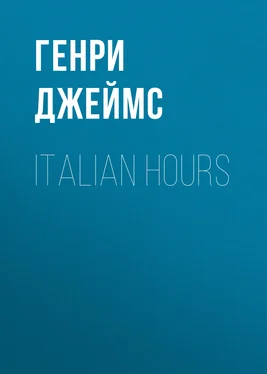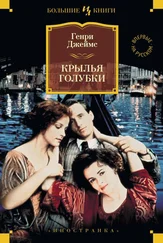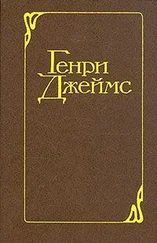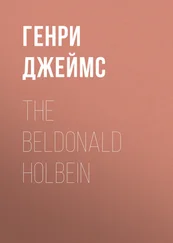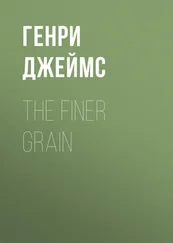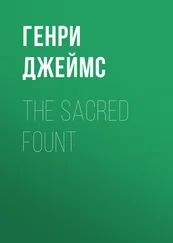Генри Джеймс - Italian Hours
Здесь есть возможность читать онлайн «Генри Джеймс - Italian Hours» — ознакомительный отрывок электронной книги совершенно бесплатно, а после прочтения отрывка купить полную версию. В некоторых случаях можно слушать аудио, скачать через торрент в формате fb2 и присутствует краткое содержание. Жанр: Путешествия и география, foreign_antique, на английском языке. Описание произведения, (предисловие) а так же отзывы посетителей доступны на портале библиотеки ЛибКат.
- Название:Italian Hours
- Автор:
- Жанр:
- Год:неизвестен
- ISBN:нет данных
- Рейтинг книги:5 / 5. Голосов: 1
-
Избранное:Добавить в избранное
- Отзывы:
-
Ваша оценка:
- 100
- 1
- 2
- 3
- 4
- 5
Italian Hours: краткое содержание, описание и аннотация
Предлагаем к чтению аннотацию, описание, краткое содержание или предисловие (зависит от того, что написал сам автор книги «Italian Hours»). Если вы не нашли необходимую информацию о книге — напишите в комментариях, мы постараемся отыскать её.
Italian Hours — читать онлайн ознакомительный отрывок
Ниже представлен текст книги, разбитый по страницам. Система сохранения места последней прочитанной страницы, позволяет с удобством читать онлайн бесплатно книгу «Italian Hours», без необходимости каждый раз заново искать на чём Вы остановились. Поставьте закладку, и сможете в любой момент перейти на страницу, на которой закончили чтение.
Интервал:
Закладка:
Henry James
Italian Hours
PREFACE
The chapters of which this volume is composed have with few exceptions already been collected, and were then associated with others commemorative of other impressions of (no very extensive) excursions and wanderings. The notes on various visits to Italy are here for the first time exclusively placed together, and as they largely refer to quite other days than these—the date affixed to each paper sufficiently indicating this—I have introduced a few passages that speak for a later and in some cases a frequently repeated vision of the places and scenes in question. I have not hesitated to amend my text, expressively, wherever it seemed urgently to ask for this, though I have not pretended to add the element of information or the weight of curious and critical insistence to a brief record of light inquiries and conclusions. The fond appeal of the observer concerned is all to aspects and appearances—above all to the interesting face of things as it mainly used to be.
VENICE
It is a great pleasure to write the word; but I am not sure there is not a certain impudence in pretending to add anything to it. Venice has been painted and described many thousands of times, and of all the cities of the world is the easiest to visit without going there. Open the first book and you will find a rhapsody about it; step into the first picture-dealer’s and you will find three or four high-coloured “views” of it. There is notoriously nothing more to be said on the subject. Every one has been there, and every one has brought back a collection of photographs. There is as little mystery about the Grand Canal as about our local thoroughfare, and the name of St. Mark is as familiar as the postman’s ring. It is not forbidden, however, to speak of familiar things, and I hold that for the true Venice-lover Venice is always in order. There is nothing new to be said about her certainly, but the old is better than any novelty. It would be a sad day indeed when there should be something new to say. I write these lines with the full consciousness of having no information whatever to offer. I do not pretend to enlighten the reader; I pretend only to give a fillip to his memory; and I hold any writer sufficiently justified who is himself in love with his theme.
Mr. Ruskin has given it up, that is very true; but only after extracting half a lifetime of pleasure and an immeasurable quantity of fame from it. We all may do the same, after it has served our turn, which it probably will not cease to do for many a year to come. Meantime it is Mr. Ruskin who beyond anyone helps us to enjoy. He has indeed lately produced several aids to depression in the shape of certain little humorous—ill-humorous—pamphlets (the series of St. Mark’s Rest ) which embody his latest reflections on the subject of our city and describe the latest atrocities perpetrated there. These latter are numerous and deeply to be deplored; but to admit that they have spoiled Venice would be to admit that Venice may be spoiled—an admission pregnant, as it seems to us, with disloyalty. Fortunately one reacts against the Ruskinian contagion, and one hour of the lagoon is worth a hundred pages of demoralised prose. This queer late-coming prose of Mr. Ruskin (including the revised and condensed issue of the Stones of Venice , only one little volume of which has been published, or perhaps ever will be) is all to be read, though much of it appears addressed to children of tender age. It is pitched in the nursery-key, and might be supposed to emanate from an angry governess. It is, however, all suggestive, and much of it is delightfully just. There is an inconceivable want of form in it, though the author has spent his life in laying down the principles of form and scolding people for departing from them; but it throbs and flashes with the love of his subject—a love disconcerted and abjured, but which has still much of the force of inspiration. Among the many strange things that have befallen Venice, she has had the good fortune to become the object of a passion to a man of splendid genius, who has made her his own and in doing so has made her the world’s. There is no better reading at Venice therefore, as I say, than Ruskin, for every true Venice-lover can separate the wheat from the chaff. The narrow theological spirit, the moralism à tout propos , the queer provincialities and pruderies, are mere wild weeds in a mountain of flowers. One may doubtless be very happy in Venice without reading at all—without criticising or analysing or thinking a strenuous thought. It is a city in which, I suspect, there is very little strenuous thinking, and yet it is a city in which there must be almost as much happiness as misery. The misery of Venice stands there for all the world to see; it is part of the spectacle—a thoroughgoing devotee of local colour might consistently say it is part of the pleasure. The Venetian people have little to call their own—little more than the bare privilege of leading their lives in the most beautiful of towns. Their habitations are decayed; their taxes heavy; their pockets light; their opportunities few. One receives an impression, however, that life presents itself to them with attractions not accounted for in this meagre train of advantages, and that they are on better terms with it than many people who have made a better bargain. They lie in the sunshine; they dabble in the sea; they wear bright rags; they fall into attitudes and harmonies; they assist at an eternal conversazione . It is not easy to say that one would have them other than they are, and it certainly would make an immense difference should they be better fed. The number of persons in Venice who evidently never have enough to eat is painfully large; but it would be more painful if we did not equally perceive that the rich Venetian temperament may bloom upon a dog’s allowance. Nature has been kind to it, and sunshine and leisure and conversation and beautiful views form the greater part of its sustenance. It takes a great deal to make a successful American, but to make a happy Venetian takes only a handful of quick sensibility. The Italian people have at once the good and the evil fortune to be conscious of few wants; so that if the civilisation of a society is measured by the number of its needs, as seems to be the common opinion to-day, it is to be feared that the children of the lagoon would make but a poor figure in a set of comparative tables. Not their misery, doubtless, but the way they elude their misery, is what pleases the sentimental tourist, who is gratified by the sight of a beautiful race that lives by the aid of its imagination. The way to enjoy Venice is to follow the example of these people and make the most of simple pleasures. Almost all the pleasures of the place are simple; this may be maintained even under the imputation of ingenious paradox. There is no simpler pleasure than looking at a fine Titian, unless it be looking at a fine Tintoret or strolling into St. Mark’s,—abominable the way one falls into the habit,—and resting one’s light-wearied eyes upon the windowless gloom; or than floating in a gondola or than hanging over a balcony or than taking one’s coffee at Florian’s. It is of such superficial pastimes that a Venetian day is composed, and the pleasure of the matter is in the emotions to which they minister. These are fortunately of the finest—otherwise Venice would be insufferably dull. Reading Ruskin is good; reading the old records is perhaps better; but the best thing of all is simply staying on. The only way to care for Venice as she deserves it is to give her a chance to touch you often—to linger and remain and return.
Читать дальшеИнтервал:
Закладка:
Похожие книги на «Italian Hours»
Представляем Вашему вниманию похожие книги на «Italian Hours» списком для выбора. Мы отобрали схожую по названию и смыслу литературу в надежде предоставить читателям больше вариантов отыскать новые, интересные, ещё непрочитанные произведения.
Обсуждение, отзывы о книге «Italian Hours» и просто собственные мнения читателей. Оставьте ваши комментарии, напишите, что Вы думаете о произведении, его смысле или главных героях. Укажите что конкретно понравилось, а что нет, и почему Вы так считаете.
